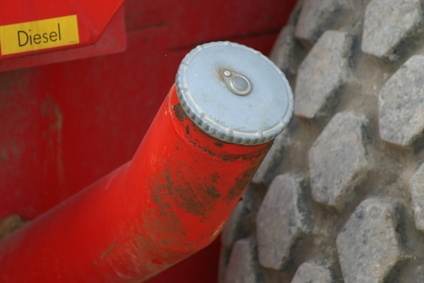
Diesel fuel has a unique chemistry and contains organic compounds, which give it different characteristics from gasoline. Because of diesel fuel's inherent physical instability, it is prone to separation, growth of organic debris, like algae and other microbes, and gelling in cold temperatures. Over time, all diesel fuels form solids and sludge in the fuel tank. These impurities cause the fuel to burn less efficiently and produce more smoke. Fouled diesel fuel can sully and clog fuel injectors, fuel pumps, fuel filters and engine parts. To burn at optimum efficiency, diesel fuel requires treatment to reverse or prevent these symptoms.
Choose your treatment depending on the climate and altitude you live in, as well as the quality of the diesel fuel you are purchasing. All diesel fuel treatments operate under the same principal, namely, a liquid additive, which you must pour into your fuel tank periodically. Some additives primarily increase the cetane rating of the diesel fuel, which is the fuel's tendency to self-ignite. Other additives are formulated to adjust the viscosity of the diesel fuel in cold weather. If your fuel is dirty and sludgy, you need a treatment that addresses contaminates. If you live in a cold climate and your fuel is gelling and choking your engine, then you need a treatment that alters the fuel's viscosity.
Add the treatment to your fuel tank when you fill up with diesel. Any diesel fuel treatment will interact chemically with your fuel over time, modifying the fuels viscosity, dissolving solids and lowering the combustion temperature of your diesel fuel. The ratios of these changes depend on the brand you choose and the quality of the diesel you start with.
Run the engine. Follow the instructions of the particular product you choose. A treatment that is geared toward dissolving the sludge in your fuel tank will need time to interact with the solids and may need to be added to your tank at night before you go to bed. A treatment that is designed to thin your fuel in cold temperatures won't need as much time.